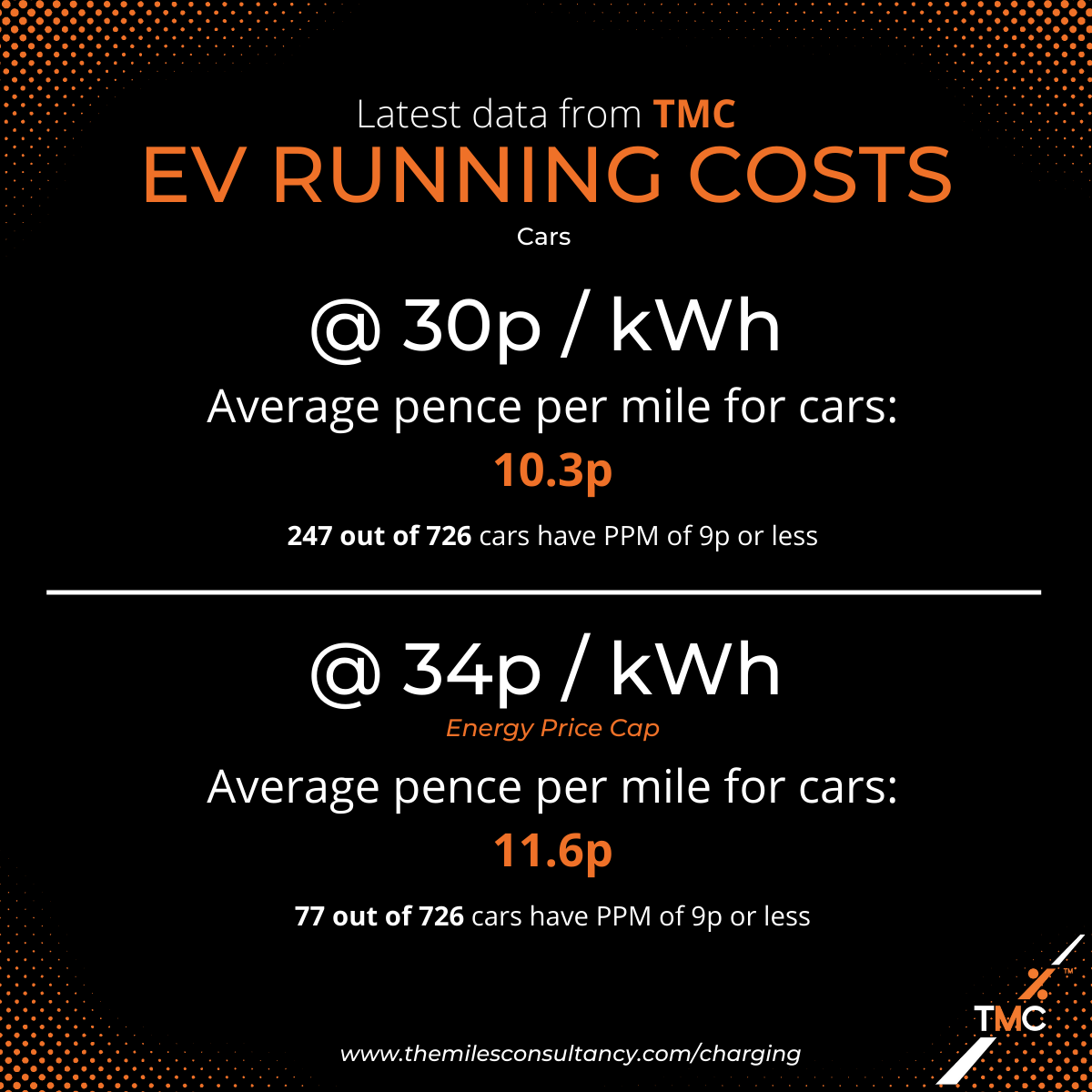New TMC data has found that the HMRC advisory electric rate, despite its rise to 9p per mile, still does not fairly reflect the running costs for the majority of electric cars
The 9p rate has been found to be inadequate for almost two thirds of all electric vehicle models based on current energy prices.
Based on a home charging rate of 30p/kWh, only 247 out of 726 electric cars run at 9p per mile or less. An increase from 30p/kWh to 34p/kWh sees this number drop from 247 to 77
As you can imagine, further increases to charging costs and the introduction of public charging events at expensive public highway charge points would reduce the number of electric vehicles running at 9p or less even more. Electric vans are even further away from the AER.
The AER is set by using the same data points for all users, something we believe is its downfall. The cost for charging is forever going to vary per user case and the miles per kWh that an electric vehicle achieves will depend on the model.
This is why actual cost reimbursement or TMC EV Rates could be more suited to your fleets. But why is that?
Actual cost reimbursement uses the driver’s tariff information and mileage records to work out their actual cost per mile. It’s fair, simple and can include public charging events/any employee/employer paid-for charging.
TMC EV Rates is essentially a real-world cost per mile for every EV in the market, calculated by TMC. They use the miles per kWh for each vehicle model (rather than the average 3.47 miles per kWh as used by the AER, or any other average used by a flat rate) whilst the cost for charging can be flexed to reflect the driver or fleet’s charging profile.
Be sure to contact us if you think this would benefit your fleet.



